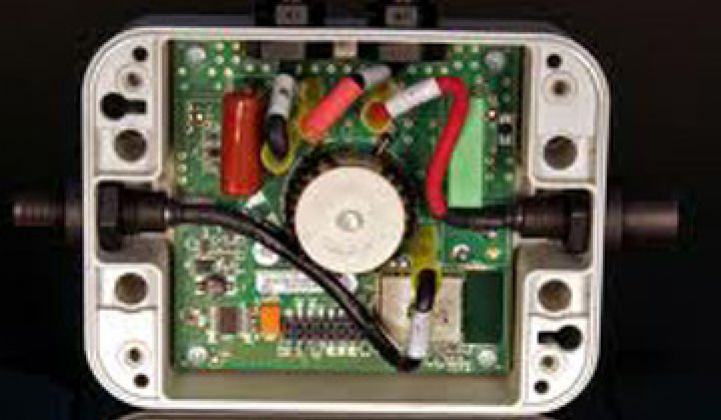Tigo Energy, one of a growing flock of startups touting chips and equipment to boost the output of solar panels, has raised $10 million.
Tigo’s technology effectively lets solar panels in an array controlled by a centralized inverter operate independently from each other. In conventional string inverter deployments, individual solar panels can only produce as much power as the weakest one. Tigo routes the power from the panels through a device called the Maximizer and thereby masks the real power output of each individual panel for the inverter. In the end, this leads to an increase in power production of 7 percent to 12 percent.
To date, the company has shipped most of its products to the residential market, but it will place a greater emphasis on the commercial market this year. It will also try to reduce the size and cost of its components through the magic of Moore's Law. Integrating the components directly into solar panels could drop the cost by 33 percent to 50 percent. Tigo says that demand will double this year and that 10 megawatts worth of chips come out each month. What does that mean in part count? Beats me, but it's a big number.
Once a somewhat obscure niche in solar, solar electronics are now a big deal. Enphase Energy, which popularized the microinverter, is arguably the best known and most successful new type of solar electronics company to date. It swaps out the traditional string inverter for individual inverters for each panel. It will come out with a third-generation product in June. Competitors like SolarBridge will also soon start to market microinverters.
Tigo, and competitors like InfiniRel, take a slightly different tack. Instead of replacing central inverters, they enhance them.
Whose vision is the correct one? Who knows at this juncture. We will likely see a plethora of different configurations and concepts. There is one thing for certain: there is no lost love between the players in the space. Many companies in this market are fond at taking swipes at each other.
Tigo will also have to watch out for competition from Texas Instruments. Earlier this month, TI announced plans to buy National Semiconductor, which makes solar maximization chips.



